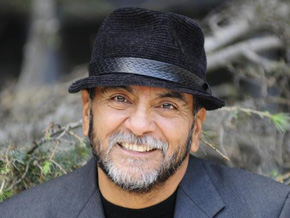The Power of Doubt: When Being Skeptical Is a Good Thing

Photo: Catherine Just
Have you ever asked yourself if something you heard was actually true? Have you ever wondered if someone was lying to you, or worse yet, have you ever wondered, "Am I lying to myself?" Do you believe those voices in your head that are giving you opinions? Do you tend to believe other people's opinions? If you answered yes to any of these questions, you will understand when being skeptical is a good thing.
Right now, you're delivering a message to yourself and to everyone around you. You're always delivering messages, and you're always receiving messages from one mind to another mind. But the most important messages are the ones you deliver to yourself. What are those messages? The word is a force you cannot see, but you can see the manifestation of that force, the expression of the word, which is your own life. The way to measure the impeccability of your word is to ask yourself: Am I happy or am I suffering? If you're suffering, it's because you're telling yourself a story that isn't true, but you believe it. When you look at yourself in a mirror, do you like what you see, or do you judge your body and use the word to tell yourself lies? If you believe that you are not attractive enough, then you believe a lie, and you are using the word against yourself, against the truth.
Is it really true that you are too heavy or too thin? Is it really true that you are not beautiful? If you're telling yourself: "I'm fat. I'm ugly. I'm old. I'm not good enough. I'll never make it," then be skeptical. Don't believe yourself, because none of these messages come from truth, from life. These messages are distorted; they're nothing but lies. The truth is, there are no ugly people. There's no universal book of law where any of these judgments are true. Every judgment is just an opinion—it's just a point of view—and that point of view wasn't there when you were born.
Everything you think about yourself, everything you believe about yourself, is because you learned it. You learned the opinions from Mom, Dad, siblings and society. They sent all those images of how a body should look; they expressed all those opinions about the way you are, the way you are not, the way you should be. They delivered a message, and you agreed with that message. And now you think so many things about what you are, but are they the truth?
What is the truth and what is the lie? Humans believe so many lies because we aren't aware. We ignore the truth or we just don't see the truth. When we are educated, we accumulate a lot of knowledge, and all that knowledge is just like a wall of fog that doesn't allow us to perceive the truth, what really is. We only see what we want to see; we only hear what we want to hear. Our belief system is just like a mirror that only shows us what we believe.
In our development, as we grow throughout our lives, the structure of our beliefs becomes very complicated, and we make it even more complicated because we make the assumption that what we believe is the absolute truth. We never stop to consider that our beliefs are only a relative truth that's always going to be distorted by all the knowledge we have stored in our memory. As children, we are innocent; we believe almost everything that we learn, but everything that we learn isn't true. We put our faith in lies, we give them power, and soon those lies are ruling our lives.
Look deep within yourself to see the truth
Adapted from The Fifth Agreement: A Practical Guide to Self Mastery. Copyright ?? 2010 by Miguel Angel Ruiz, MD, Jose Luis Ruiz and Janet Mills. Reprinted by permission of Amber-Allen Publishing, Inc., San Rafael, California.



